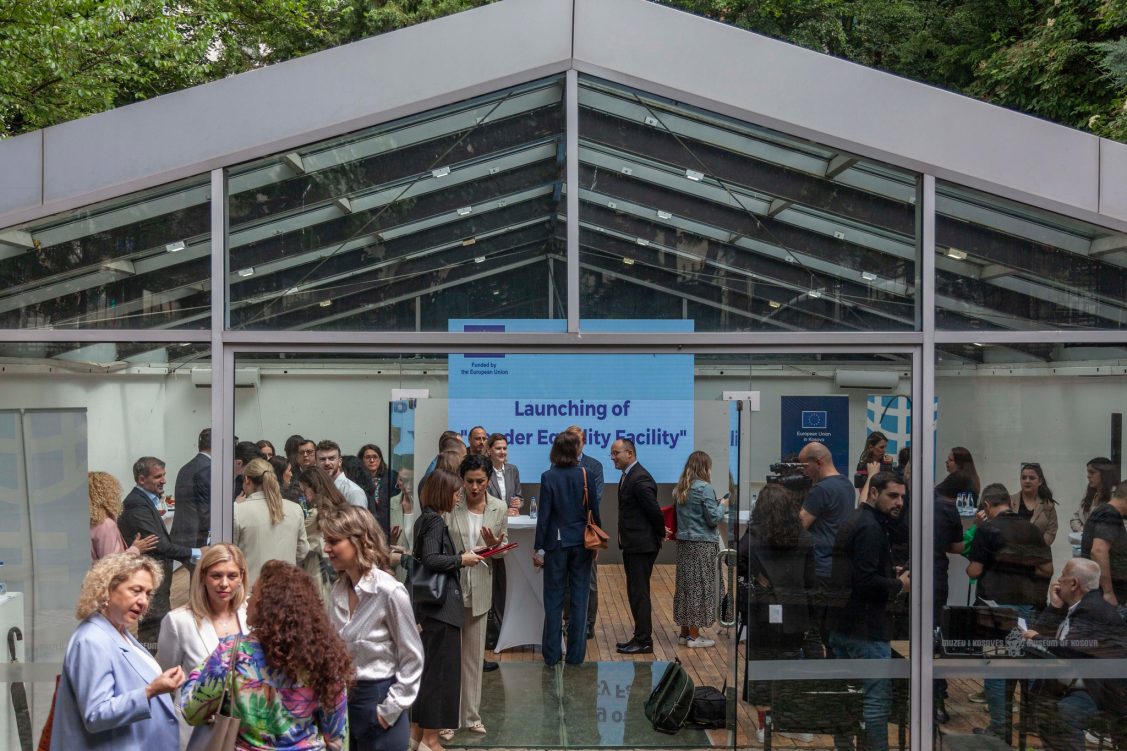August 7, 2023 | Monday
In a landmark effort to promote gender equality and drive socio-economic development, the Gender Equality Facility (GEF) has taken center stage in Kosovo. Supported by the European Union, and implemented by UN Women Kosovo, GEF is a pioneering initiative designed to mainstream gender equality across sectors and strengthen the gender equality mechanism in South-East Europe’s candidate countries. Through a range of activities and partnerships, the GEF aims to create more equitable outcomes for women, men, girls, and boys, while enhancing Kosovo’s journey towards EU accession.
Kosovo, like many nations, faces the challenge of bridging gender disparities and fostering an inclusive society. The GEF aims to address this issue head-on by providing strategic support to selected Kosovo institutions. Anchoring gender knowledge and skills within the public administration becomes pivotal for shaping governance processes that are responsive to the needs of all citizens.

Recognizing the importance of gender capacity within the government, the GEF emphasizes the coherent absorption of the EU Gender Equality acquis in the years to come. As part of its comprehensive strategy, the GEF aims to strengthen the effective implementation of national and international legal frameworks on gender equality and women’s rights. This includes mainstreaming gender into EU integration and planning processes for pre-accession assistance, and bolstering institutional mechanisms for gender equality.
In partnership with the Kosovo Program for Gender Equality 2020-2024, the GEF pursues the overarching goal of supporting the Government of Kosovo in enhancing the transposition of the EU Gender Equality acquis. This endeavor aims to produce positive socio-economic development outcomes for all citizens, irrespective of gender.
The GEF engages a diverse range of stakeholders and partners, including the Agency for Gender Equality (AGE), Gender Equality Officers (GEOs), the Kosovo Institute for Public Administration (KIPA), the Development Cooperation Office in the Prime Minister’s Office, line ministries, sector governance structures, and the EU Office in Kosovo, among others. This collaborative approach aims to ensure the widest possible impact on society.